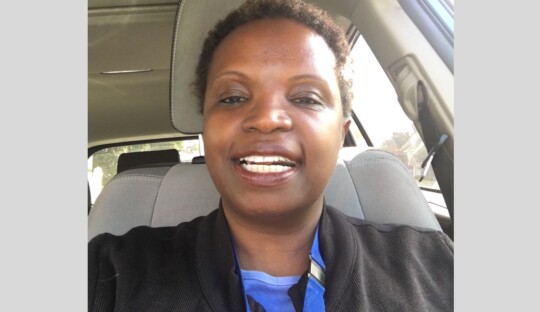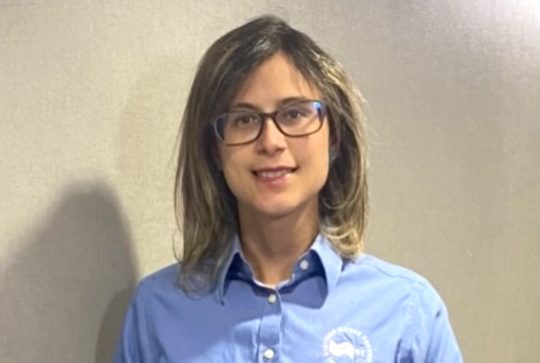CMHS Social Worker Christine Garcia: Providing Stability for Children in Crisis
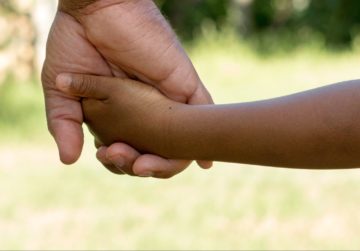
Christine Garcia still vividly remembers one of the first young patients she cared for when she began her job as a social work assistant with VNSNY’s Home-Based Crisis Intervention program (HBCI), some 16 years ago. The ten-year-old boy’s parents were not available to him, and he had been sent to live with his aunt and her family in Brooklyn. After his discharge from an emergency psychiatric care setting, he was referred to HBCI, a part of VNSNY’s Community Mental Health Services (CMHS), to get home care treatment for deep depression. The referral came too late for the boy’s new home situation to be stabilized, though, and he was forced to re-enter the system.
“It was heartbreaking,” said Christine. “If VNSNY had been involved earlier, we might have changed his life.” At the same time, she adds, “that case planted a seed for me, by showing that there is real potential for positive change for children struggling with acute mental illness and behavioral issues. I’m still motivated by his case.”
Caring for both children and their families has always been central to Christine’s work. In her first position at VNSNY, in 2000, Christine served as a social work assistant in the Housing Preservation Development program, working closely with families living in homeless shelters and shepherding them through the process of finding appropriate housing. While she had considered a career in law enforcement, this introduction to social work showed her that advocating for the disenfranchised on a hands-on basis—“speaking for people who have no voice or have problems like mental illness that are so misunderstood”—was gratifying and fulfilling for her.
After a year, Christine transferred to the HBCI program in Brooklyn, where she has served as an advocate for children in crisis. As she developed the skill to navigate the complex mental health system as well as the protocols of the Department of Education, she became committed to ensuring that “kids with mental health issues don’t fall through the cracks.”
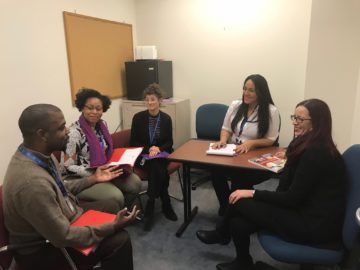
Today, Christine is the Program Coordinator for the Brooklyn branch of the HBCI. Funded by a grant from the New York City Department of Health and Mental Hygiene, the program’s services are available at no charge for children between the ages of 5 and 18 who have experienced an acute mental health issue. Referred from emergency departments, psychiatric hospitals, outpatient mental health clinics and mobile crisis teams as a discharge option, most of the children have demonstrated suicidal behaviors and ideation or severe depression. “While there are other programs available, our program is unique because we provide all services in the home, where we can work with the child and the family at the same time,” explains Christine. “We provide short-term, intensive treatment—three times per week, two hours at a time, for four to six weeks. The goal is to defuse the crisis and keep the child at home by implementing a safety plan and establishing a stable home environment, with the whole family on board. We then link the family to community services for long-term support to help maintain that stability.”
Along the way, Christine also went to school at night to earn a full social worker degree followed by a master’s degree in social work. She now supervises a staff of eight social workers and doesn’t always have the chance to go out in the field as much as she’d like, but when she can, she will still join her staff members to help open new cases. She feels it is “important to put a face with a name,” and also finds that her personal involvement helps reinforce the relationship between HBCI and those it serves—even to the point of attending holiday dinners with patients’ families.
“Lucky for me, I found a work family at HBCI,” she says. This includes colleagues like Devon Bandison, Director of Children’s Services for CHMS, and Debra Thomas, Program Coordinator for CMHS’s Children’s Mobile Crisis Team. “They have always been there to give me support and to inspire me with their compassion and dedication,” notes Christine. Her relationship with her supervisor for the past 10 years, Lori Rodriguez, Associate Director of CMHS Children’s Services, has been especially important to her. “Lori has motivated me in my day-to-day field work and also helped focus me on my professional development,” she says. “She helped me stay committed to both my work and education—all as a single mother with three kids of my own.” Her greatest inspiration, adds Christine, is her own family. “My three daughters, aged 23, 20, and 13, show me every day what a strong and loving family means. I came from a broken home myself, and I wanted things to be better for my kids. I see with my patients that it takes the whole family pulling together to make it work.”
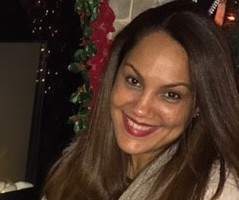
For Christine, who is also a veteran of the U.S. Army Reserve—where she served from 1992 to 2008—there aren’t enough hours in the day. This past year, she was enrolled in a Seminar in Field Instruction (SIFI) certification course at Hunter College. “It’s training me in staff development so I can give back more to my team and keep in tune with new social work practices,” she notes. Christine is also an on-call overnight supervisor and per-diem staff member for VNSNY’s Children’s Mobile Crisis Team, a service provided under the auspices of the city program NYC Well, which responds to mental health crises in the community, provides counseling, initiates emergency services as needed, and makes referrals to community-based programs for ongoing care.

In addition, Christine was recently chosen to be part of ACE (Achieving a Culture of Excellence) for 2017-18—a program that seeks to identify and develop VNSNY’s future leaders. “I was honored to be chosen to participate in ACE,” she says. “Besides the awesome coaching, I get to see the big picture of VNSNY, meet individuals from many areas of the company, and share ideas for treating patients. This is another example of how VNSNY is like a family to me. They have helped me grow tremendously, both professionally and personally.”

